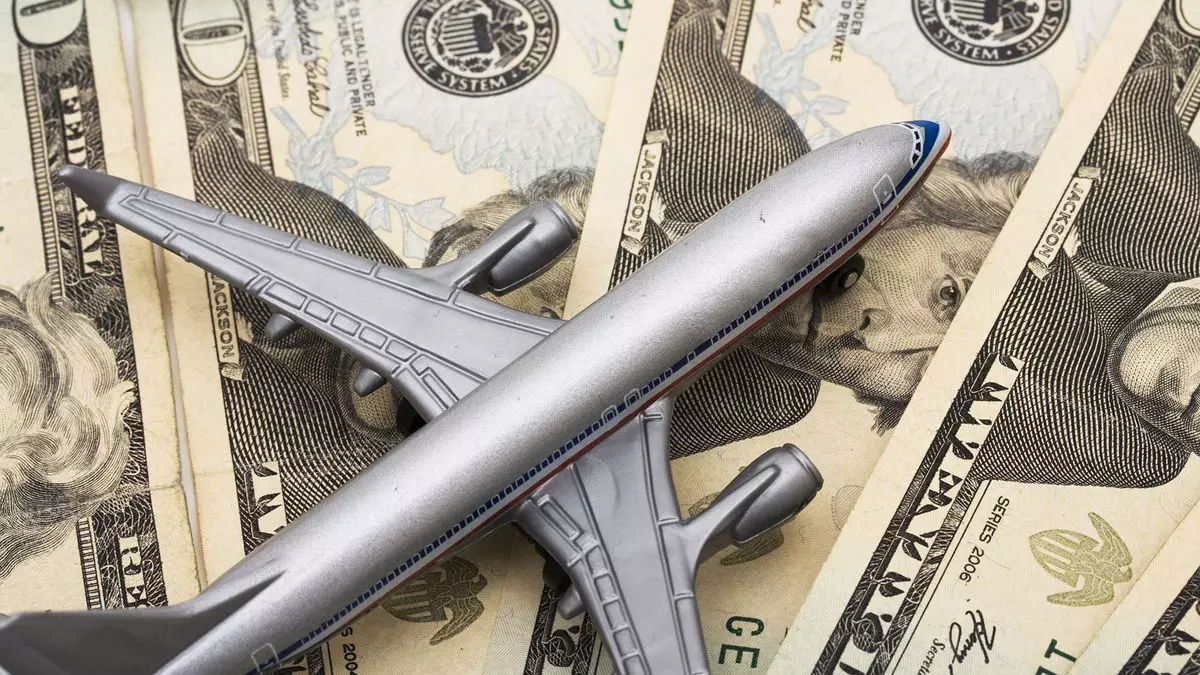The airline industry is currently navigating through a tempestuous landscape, exacerbated by President Trump’s sweeping global tariffs. As an investment analyst from TD Cowen, Tom Fitzgerald highlights that these tariffs could potentially escalate existing challenges for U.S. airlines, which are already struggling against a backdrop of economic instability. The ripple effects of these tariffs are poised to not just limit airline profitability but also hinder overall demand within the market. With the shadow of recession looming, analysts cautioned that such axiom could propel a vicious cycle affecting the entire economy.
The Business Travel Slump and Consumer Confidence
Business travel, a crucial revenue stream for airlines, has taken a significant hit in recent months. Fitzgerald points out that this downturn is primarily driven by hesitancy within the financial markets. The stock market’s volatility is wounding consumer confidence and particularly impacting baby boomers, who traditionally maintain a robust participation in business travel. As corporate budgets tighten in response to fluctuating economic conditions, the demand for air travel is likely to plummet further. Fitzgerald’s observations could foreshadow a grim reality for airlines bracing for weaker financial projections in their upcoming earnings calls.
Market Reaction: A Grim Forecast for Airline Stocks
The Jets ETF fund, which aggregates U.S. airline stock performance, has already seen a staggering 33% decline since its peak on inauguration day. This sharp decrease indicates not just a shrinking market but also growing investor apprehension regarding the sector’s trajectory. Such bearish sentiment prompted several airlines to lower their earnings guidance in early March, citing declining consumer confidence and significant job cuts in the federal sphere—factors that correlate directly to travel demand. With major airlines like Delta poised to reveal their earnings updates shortly, analysts expect a further adjustment in revenue predictions, signaling a widespread apprehension concerning future profitability across the sector.
The Dual Edge of Tariffs: Pressure on Prices and Capacity
Interestingly, the current scenario isn’t all doom and gloom. As Fitzgerald suggests, the airlines exiting this economic strain may have to contend with a surplus of available seats, intensifying price competition. With demand softening considerably, airlines may need to substantially adjust their capacity and inventories. The hope is that consumers who continue to fly can benefit from lower airfare prices, as competition among carriers heats up. This competitive landscape might compel airlines to innovate their pricing structures, especially among full-service operators who could stand to gain from the downturn.
Strategic Shifts in the Airline Industry
Fitzgerald posits a differing fate for full-service airlines compared to low-cost carriers amid this downturn. Instead of abandoning full-service airlines for budget options, customers may opt for the lower-tier products from established carriers. This suggests a nuanced shift in consumer behavior influenced by economic pressures rather than a direct swap for cheaper alternatives. The implications of such a shift could guide carriers as they strategize on how to captivate an increasingly discerning audience while balancing the challenges posed by tariffs and economic fluctuations.
In this volatile climate, the U.S. airline industry must brace itself with adaptability and foresight, remaining vigilant against ongoing uncertainties and striving to capitalize on any potential competitive edges.


Leave a Reply